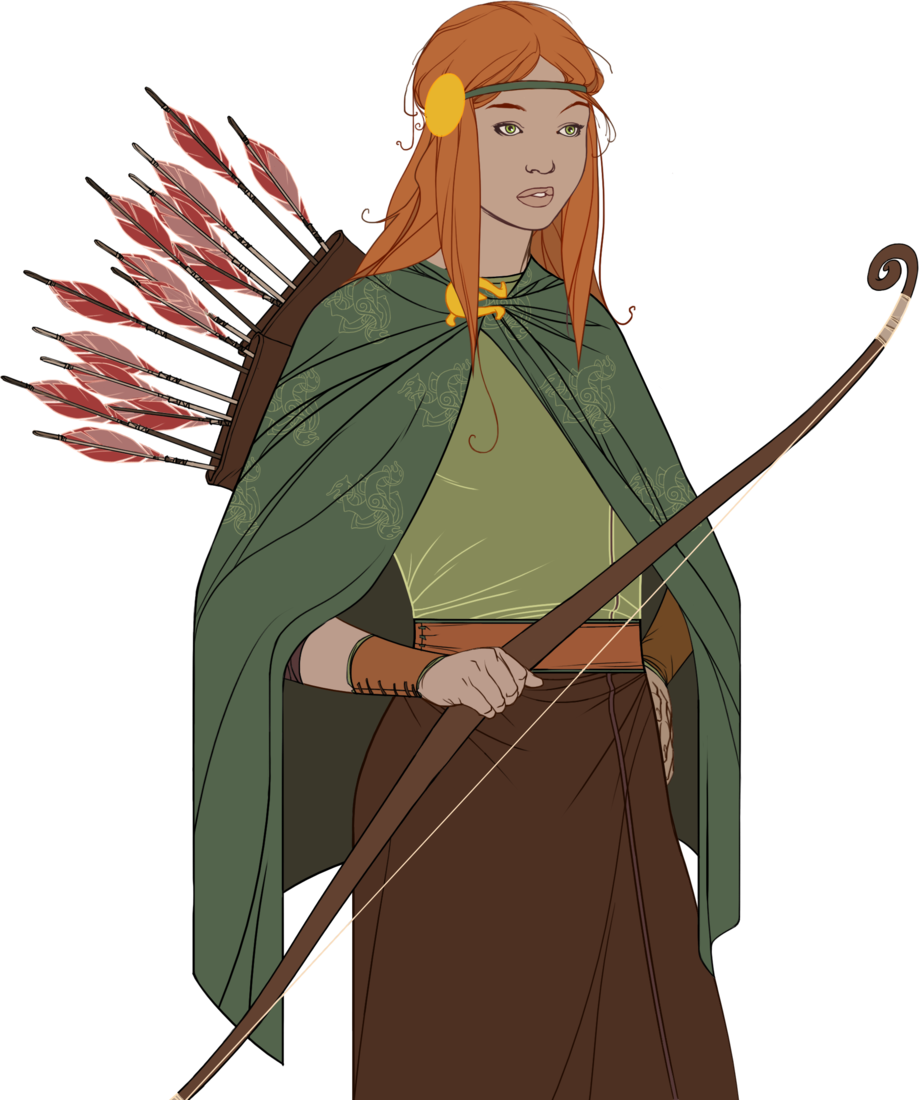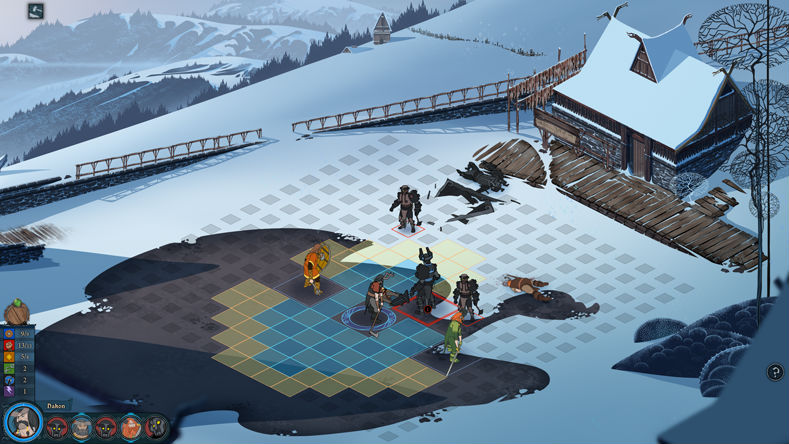The Banner Saga - Review
The Banner Saga’s awe inspiring scope is both its biggest strength and weakness. It paints a picture so lavish and compelling that it's almost irritatingly compelling with each new thread it introduces, so rich that you want to spend time learning about every character and piece of lore but haven’t the time to do so. In a medium so over saturated with derivative fantasy, the distinctiveness of the world Banner Saga creates pulled me in eagerly awaiting even the most trivial of pieces of exposition. It wrapped me up so tightly in its intrigue that even when its problems surfaced they could do little to take me out of the experience, the only real issue then being that said experience unfortunately only has enough time to tell part of its story.
 The Banner Saga is quite simply the telling of the end of days. The Sun has stopped moving, the gods are dead, and the return of an enemy thought extent threaten to annihilate those few who still survive. It’s bleak and unrelenting in its showcasing of how dire a place the world has become, as you embark on a caravan fleeing to anywhere not already destroyed, many not living to see the journey’s end.
The Banner Saga is quite simply the telling of the end of days. The Sun has stopped moving, the gods are dead, and the return of an enemy thought extent threaten to annihilate those few who still survive. It’s bleak and unrelenting in its showcasing of how dire a place the world has become, as you embark on a caravan fleeing to anywhere not already destroyed, many not living to see the journey’s end.
The tension of the narrative - the abundant despair and sacrifice every step of the way - rejects the overly cautious writing far too often substituted in for more disruptive outcomes, and makes the characters you travel with people you care and worry about. With how constant the possibility of death becomes, I was invested not only in each character’s narrative but also in fighting to keep them alive as best I could. The choices presented before you become agonizing decisions that often decides who lives and dies, leaving me paralyzed as I hoped I’d made the right call. It’s stressful, but crucial to the story Banner Saga wants to tell and the emotion it intends to make you feel, and it succeeds at this almost perfectly.
The lack of voice acting or animated cutscenes for most of the game definitely at times hinders the impact of events, but by the time these begin to arrive I was already so caught up in who my characters were that dialogue alone was enough to humanize them. The bigger “problem” is that Banner Saga’s narrative and world are on a scale far larger than a single game can contain, and as a result many of the story’s plotlines both overt and secondary are left dangling, with a statement that they will be expanded upon with the next two games in a planned trilogy, but for the time being left me frustrated that I was so quickly cut off. Of course I say this only because of how enthralling the narrative is already, but it was a tad disappointing to see so much setup but only partially executed, leaving me with more questions than answers and praying this adventure gets finished.
With how seamlessly the experience flows together, it might be easy to forget that under all the plot and jaw-dropping artwork exists a polished and inspired turn-based strategy game. The Banner Saga works as a game of small, important numbers and mechanical simplification so as to make every fight immediately understandable. There are very few numbers to be concerned about, and every one that is here matters and is imperative to make the absolute most of if you want your party to survive. Fights are designed not as giant encounters or grand boss fights, but small battles that often come down to the last fighter standing. This raw, streamlined approach was refreshing, not only in that it cut down on the number of throwaway encounters but also made me far more conscious of every tool at my disposal.
Party creation and leveling were more meaningful to me as each character played a distinct role in combat, and raising their skills was a rare and extremely important event. The low numbers tied to everything kept things from ever becoming overwhelming, and made positioning of fighters just as if not more important than the blunt force they could inflict. With each battle intimately tied to the narrative, I also became conscious of who it was I was sending into battle, a decision that could potentially result in them never coming back.
The areas where combat breaks slightly are mostly related to a handful of oversights as to what information you’re given. Though you might have been given hints via a preceding narrative bit, you’re never allowed to see who or what you’re fighting before the fight has already begun. This makes selecting the right fighters almost a game of luck or forcing you to develop a standardized strategy and only focus on characters that work within it (which of course is compromised if one of those characters dies or is injured). It prohibits experimentation and seems kind of silly, as surely you could see the battle you were going into before you walked into it. This extends even into letting you see character stats, level up, or change items on the party select screen, which can have a huge effect on your outcome if you haven’t recently looked at and adjusted these earlier.
Final Word
What’s surprising though, is that The Banner Saga’s flaws for as irritating as they often are feel less like problems and more potential. There’s so much here that’s inspired, engaging, and full of promise that anything that doesn’t work perfectly doesn’t bring the game down but show areas where it could be made even more amazing. This doesn’t make it a flawless game, but it does make it one that’s worth playing despite any mistakes it makes. Developer Stoic’s ambition is intoxicating and left me not unsatisfied by what The Banner Saga isn’t, but excited to see just how much more it becomes.


